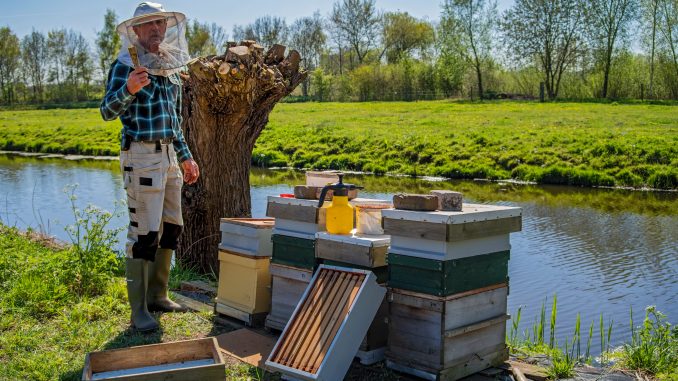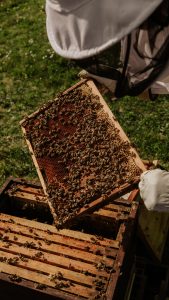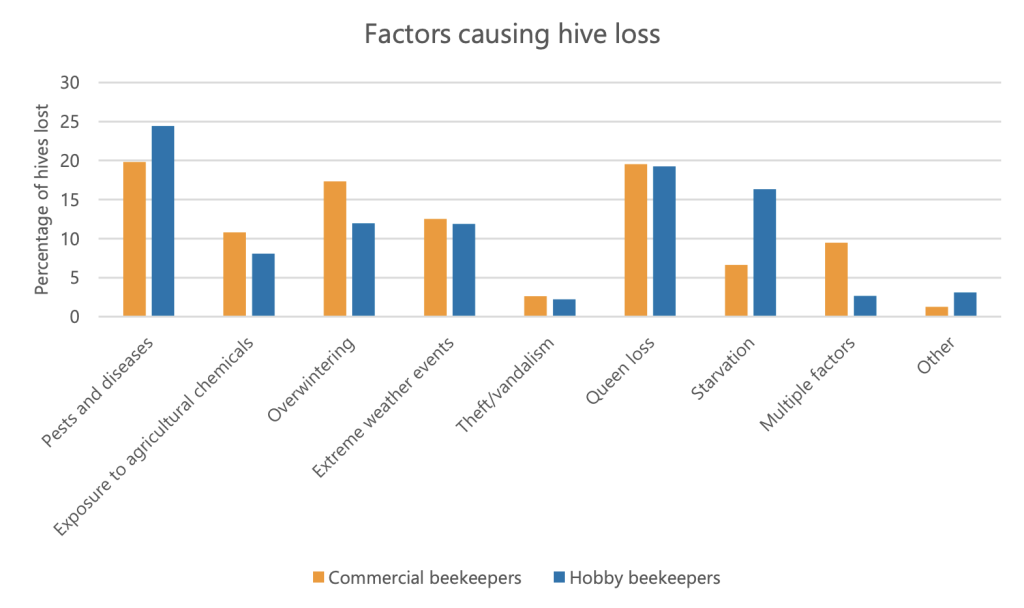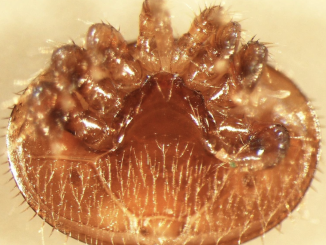
News angle:
- Present the cruel situation that beekeepers are facing now
- Explores the reasons why the government takes this measure
- Interviews the public’s understanding and thoughts about it
- Obtain opinions and suggestions from professor Jennifer Potts, head of Life and Environmental Sciences School
News value:
- Significance : bees have an important impact on Australia’s economy, food security and ecological environment.
- Proximity: the incident took place in New South Wales, so it happened close to us geographically.
- Conflict between government action and the interests of the people.
- Human interest:people want to know what difficulties beekeepers are facing.
I plan to publish the article on Crikey, an Australian digital news media platform. Here is the background information I am looking for the story:
On 24 June 2022, a biosecurity emergency to declare infected bee hives by Varroa mites was declared because of the biosecurity risk arising from the presence of Varroa mites which can reduce healthy bee population and the pollination services they provide by 90%.
risk arising from the presence of Varroa mites which can reduce healthy bee population and the pollination services they provide by 90%.
But so far, the Australian government’s Department of Agriculture, Fisheries and Forestry says it has found an increasing number of Varroa mites in NSW, so it has extended the emergency period and expanded bee “eradication” and “surveillance” areas.
Each red eradication zone will be baited with syrup containing the highly toxic pesticide fipronil, which will last for 12 months.
-
Such schemes have hit beekeepers hard but also blown the entire chain of industries that depend on bees.
The European honey bee contributes directly to the Australian economy with the industry valued at around $100 million per annum with total honey production ranging between 20-25,000 tonnes each year.
Honey bees also contribute to the productivity of many horticultural and seed crops, and the pollination services have been estimated to contribute between $620 and $1,730 million to the value of Australian agricultural production per annum.
Therefore, these extreme method of using fipronil bait to kill bee colonies in the red zone of NSW, which was unacceptable to local beekeepers.
-
Beekeepers are questioning Australian Pesticide and Veterinary Medicines Authority’s right to approve the drug
Fipronil has been banned in the UK and Europe because of its toxicity, but the Australian Pesticide and Veterinary Medicines Authority still approved the drug for use and indicated that it was safe to use following instructions.
Even though the agent did receive information and advice indicating that beekeepers have lost colonies as a result of this pesticide use, this is usually due to a breakdown in communication between farmers and affected beekeepers declared by the agent.

Therefore, based on the above information, the conflict between beekeepers in New South Wales and the government’s current fipronil bait program deserves public discussion and joint efforts to solve.
I will explore more possibilities to solve the conflict through reporting this news hoping this article can be published, thank you.


Dear Qianqian.
I really enjoyed reading your proposal, I reckon it’s a great topic! And I really like the multimedia and charts that you provided to make it more convincing. However, I wondered who are your interviewees? and are there any experts in this filed you’d like to interview as well as your target audiences? I believe your story will be very interesting after you think about these questions. Overall, good job!
Crystal